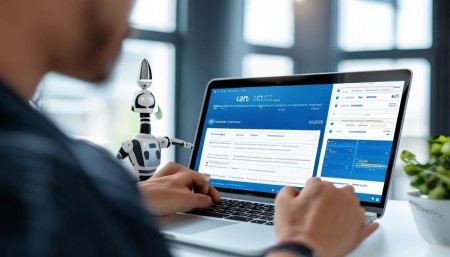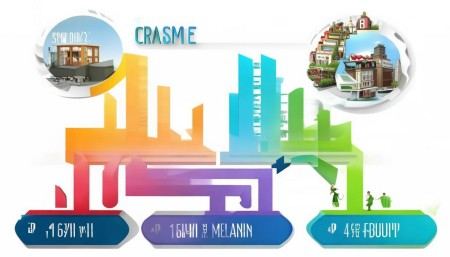
△Click on the top right corner to try Wukong CRM for free
Hey there! So, you're curious about CRM in customer management systems, huh? Well, let me tell you, it's a pretty big deal. Imagine having a super-smart assistant that helps you keep track of all your customers, their preferences, and even what they might want next. That’s kind of what a CRM (Customer Relationship Management) system does for businesses.

Now, think about it this way: if you had a friend who always remembered your birthday, your favorite food, and the last time you hung out, wouldn’t you feel special? That’s exactly how a CRM makes your customers feel. It’s like having a personal assistant for every single one of your customers, making sure they get the best experience possible.
But, you know, it’s not just about making people feel good. A CRM is also a powerful tool for growing your business. Let me give you an example. Say you run a small coffee shop. With a CRM, you can keep track of which customers order decaf, which ones love a double shot of espresso, and who always adds an extra shot of caramel. This means you can send them personalized offers, like a discount on their favorite drink, or maybe a free pastry with their next order. And trust me, little touches like that can make a huge difference.
Another cool thing about CRMs is that they help you stay organized. You know how sometimes you forget to follow up with someone, or you lose track of a conversation? A CRM takes care of all that. It reminds you when to reach out, keeps all your notes in one place, and even helps you schedule meetings. It’s like having a digital notebook that never forgets anything.
And let’s not forget about the data. CRMs are great at collecting and analyzing data, which is super important these days. You can see trends, figure out what’s working and what’s not, and make better decisions. For instance, if you notice that most of your customers prefer iced drinks in the summer, you can stock up on those and maybe even create a new iced drink special. Data-driven decisions like these can really boost your sales and keep your customers happy.
Now, I know what you’re thinking: “This sounds great, but is it complicated to set up?” Well, it can be, but it doesn’t have to be. There are a lot of user-friendly CRM systems out there that are designed for small businesses. They come with easy-to-use interfaces, and many even offer free trials so you can test them out before committing. Plus, there are tons of tutorials and support available, so you’re never alone in the process.

One of the biggest benefits of using a CRM is that it helps you build stronger relationships with your customers. When you know more about them, you can serve them better. For example, if you own a clothing store and you know that one of your regular customers loves a particular brand, you can let them know when new items from that brand arrive. Or, if you run a gym and you know that a member is training for a marathon, you can offer them personalized training tips or a special package. These kinds of gestures show that you care, and they can turn a one-time customer into a loyal fan.
But, hey, it’s not just about the customers. A CRM can also make life easier for your team. Imagine if everyone in your company could access the same information about a customer, no matter where they were. No more miscommunications, no more lost emails, and no more confusion. Everyone is on the same page, and that means smoother operations and happier employees. And, as we all know, happy employees lead to happy customers.

Another thing to consider is that CRMs can help you automate a lot of tasks. Think about all the repetitive stuff you do, like sending out newsletters, following up with leads, or even scheduling social media posts. A CRM can handle all of that for you, freeing up your time to focus on more important things, like actually talking to your customers and coming up with new ideas to grow your business.
And, speaking of growth, a CRM can be a game-changer when it comes to scaling your business. As your customer base grows, it becomes harder and harder to keep track of everything. But with a CRM, you can manage thousands of customers just as easily as you managed a few dozen. It scales with you, so you don’t have to worry about outgrowing your system.
Now, I know some people might be a bit skeptical. “Is it really worth the investment?” The answer is, absolutely. The return on investment (ROI) for a CRM can be huge. Not only does it save you time and money, but it also helps you increase sales and retain customers. In fact, studies have shown that companies using a CRM see significant improvements in customer satisfaction and revenue. So, while there might be an initial cost, the long-term benefits are well worth it.
But, let’s be real, no system is perfect. There are some challenges to using a CRM, too. One of the biggest is getting your team to actually use it. You know how it is—people can be resistant to change. But, with a bit of training and some clear communication about the benefits, you can get everyone on board. Another challenge is keeping the data clean and up-to-date. If you don’t, the whole system can become less effective. But, again, with a little effort and some good practices, you can overcome these hurdles.
So, if you’re still on the fence, let me leave you with this: in today’s competitive world, having a CRM is almost like having a secret weapon. It gives you an edge over your competitors, helps you understand your customers better, and ultimately, helps you grow your business. And, honestly, who doesn’t want that?

Alright, I hope that gave you a good idea of what CRM in customer management systems is all about. Now, let’s wrap things up with a few questions and answers, shall we?
Q: What is a CRM, and why is it important? A: A CRM, or Customer Relationship Management system, is a tool that helps businesses manage and analyze customer interactions and data. It’s important because it helps you build stronger relationships with your customers, improve customer satisfaction, and ultimately, grow your business.
Q: Can a CRM help with marketing and sales? A: Absolutely! A CRM can help you segment your customers, send targeted marketing campaigns, and track the effectiveness of your sales efforts. It’s a powerful tool for both marketing and sales teams.
Q: Is a CRM only for large businesses? A: Not at all! While large businesses often use CRMs, there are plenty of options designed specifically for small and medium-sized businesses. Many of these are user-friendly and affordable, making them accessible to businesses of all sizes.

Q: How do I choose the right CRM for my business? A: Start by identifying your specific needs and goals. Look for a CRM that offers the features you need, such as contact management, analytics, and automation. It’s also a good idea to read reviews, try out free trials, and talk to other businesses in your industry to see what works for them.
Q: What are some common challenges when implementing a CRM? A: Some common challenges include getting your team to adopt the new system, keeping the data clean and up-to-date, and integrating the CRM with other tools you use. However, with proper training, clear communication, and a bit of planning, you can overcome these challenges.
I hope that helps! If you have any more questions, feel free to ask. Happy CRM-ing!
Related links:
Free trial of CRM
Understand CRM system
AI CRM Systems

△Click on the top right corner to try Wukong CRM for free